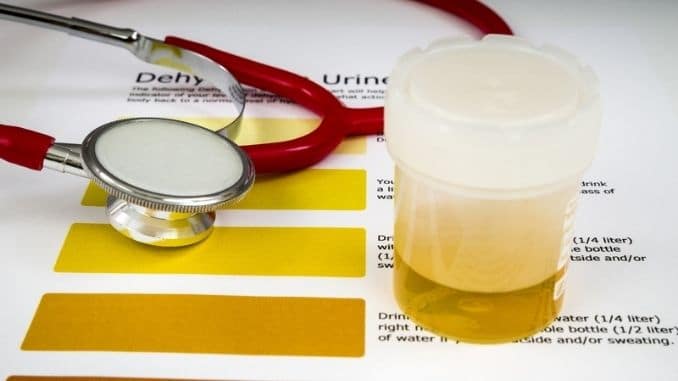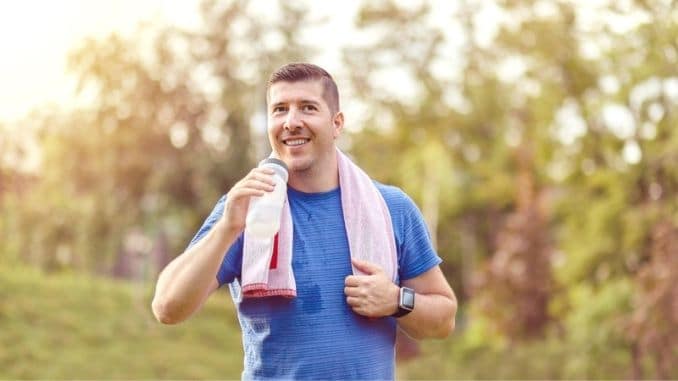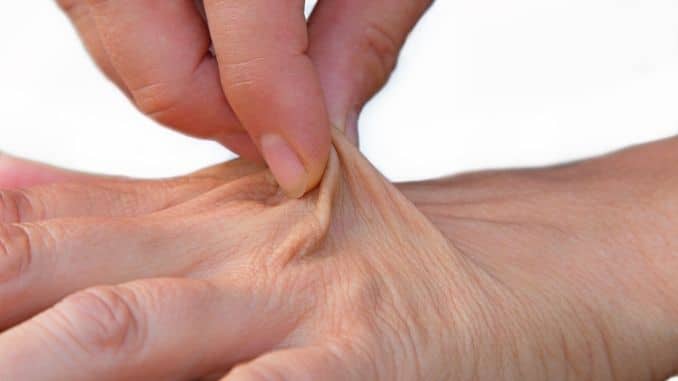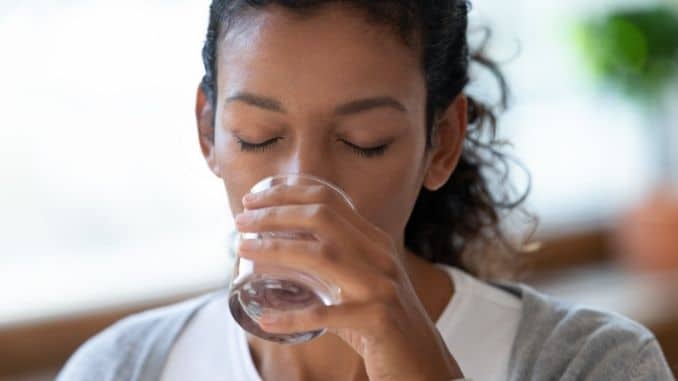
Drinking water every day is good for your overall health. Most of us know that, but what we may not know is how much water is enough, and when we may need more than we’re getting. Below we share the most reliable 10 signs of dehydration. Watch for these particularly during the warm months. If you notice them, get some water right away.
If you can’t rely on your thirst, how do you recognize signs of dehydration? Watch for the following 10 signs of dehydration.
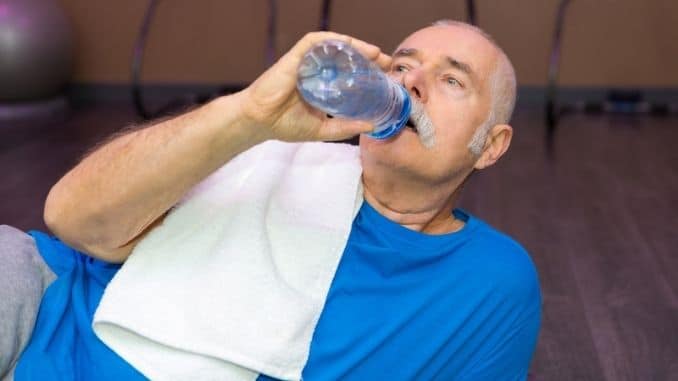
10 Signs of Dehydration
1. You’re Tired
You may think you’re starting to slow down because you didn’t get enough sleep last night, or because you just got out of a boring meeting. Both are possible, but you should consider that what you really need is a tall glass of water.
Studies have found that even mild dehydration triggers fatigue. This is one of the most reliable symptoms of dehydration there is, so if you’re getting sleepy, drink up!
2. You’re Getting Cranky
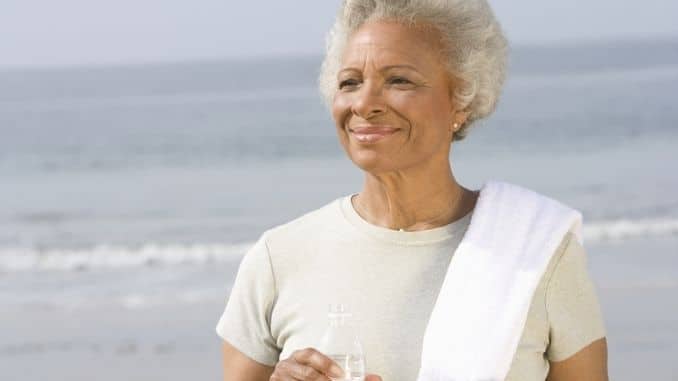
Did you just snap at a coworker or one of your children? It’s time to get a drink of water. Studies have found that even mild dehydration can make you cranky and irritable. In a 2012 study, researchers reported that just 1.36 percent of fluid loss put women in a bad mood.
The University of Connecticut agrees that even mild dehydration can affect mood [1]. According to two studies conducted at the university’s Human Performance Laboratory, mild dehydration (only 1.5 percent fluid loss) caused negative mood changes whether the participants were exercising or resting, showing that we need fluids all the time, no matter what we’re doing.
3. You Have a Headache
Though headaches can be caused by numerous factors, dehydration is one of them. In the study mentioned above, researchers found that mildly dehydrated women were more likely to suffer from headaches.
In a 2011 study of patients with chronic headaches, researchers found that drinking more water resulted in a statistically significant improvement in headaches.
The National Headache Foundation states that headaches are a common symptom of mild to moderate dehydration. They add that many types of headaches, including migraines, can be triggered by dehydration.
4. You Can’t Concentrate
If your ability to focus on the project you’re doing starts going downhill, get a drink of water. One of the 10 signs of dehydration is impaired cognitive function, which can make it harder for you to concentrate.
In a 2011 study of young men [2], researchers found that mild dehydration caused negative changes in working memory, while also increasing tension/anxiety and fatigue.
In a 2019 study of college students, researchers found that when dehydrated, the students scored lower on tests [3] than they did when properly hydrated. They also felt more tired and irritable.
In an earlier study, being dehydrated by just 2 percent impaired performance tasks that required attention and memory skills.
5. Your Urine is a Dark Yellow Color
Many doctors advise you to watch for this symptom above all others, as it is thought to be a reliable marker of dehydration.
The U.S. Army Public Health Command has created a convenient color chart that you can use to determine what your urine is telling you about your hydration. Simply match your urine color to the closest color in the chart and read your hydration level.
When you’re dehydrated, the kidneys conserve water and excrete more concentrated urine. A dark yellow color is one of the 10 signs of dehydration, indicating you are not getting enough water. A very pale yellow color shows that you are getting enough fluid.
6. Your Muscles are Cramping
Muscle cramps are another reliable symptom of dehydration. Though they can occur because of other factors, if you’re experiencing them while you’re exercising, that’s a good sign that you’re not drinking enough.
Muscle cramps can also be a sign of heat-related illness, so if you experience them, be sure to rest and drink water or a sports drink supplemented with electrolytes to help your body recover.
Remember—if you’re outdoors in the hot weather, you need more water than usual to stay hydrated.
7. You’re Suffering from Cravings
If you think you’re craving something sweet or salty to eat, drink a glass of water first. It’s easy for the body to confuse hunger and thirst, which means being mildly dehydrated may compel you to eat rather than drink.
When you’re dehydrated, it can also be difficult for organs like the liver to release stored glucose for energy, and that can also make you think you’re hungry. So try a glass of water before you reach for that donut.
8. You Have Bad Breath
Going out on a date? Make sure you drink enough water! Your saliva naturally kills the bacteria in your mouth that can cause bad breath. If you’re dehydrated, you won’t produce enough saliva to keep that bacteria in check, and the odor-producing bacteria can get the upper hand.
This is the same reason you have “morning breath” when you first wake up. Saliva production slows down during sleep, leading to bacterial growth and an unpleasant taste in the mouth. If you notice the same feeling during the day, rehydrate and see if that helps.
9. Your Skin Is Dry
The skin pulls water from the inside of your body just like the rest of your body organs do. One of the 10 signs of dehydration is dry or flushed skin, which occurs when you’re not drinking enough. To maintain your best youthful look, be sure you’re drinking enough throughout the day to keep the skin plump and hydrated.
Another sign of dehydration in the skin is a loss of elasticity. Normally if you pinch up some skin on the back of your hand and then let it go, it will return to its normal position in a couple of seconds. If it takes longer than usual to do that, you may need to drink a glass of water.
10. You Can’t See Straight
Though many factors can contribute to dry eyes (especially staring at the computer for long periods), dehydration is one of them. Blurry vision is one of the 10 signs of dehydration, as your eyes may dry out if you’re not getting enough water. Other symptoms may include dry, itchy eyes that are uncomfortable.
Just like your skin draws moisture from your body, so too do your eyes. Keep them hydrated from the inside out by drinking enough water throughout the day.
The most important thing to remember is that by the time you feel thirsty, you are likely already dehydrated, so it’s best to drink water throughout the day to ensure you don’t get to that point. Set a target to consume a specific amount of water each day and stick to it.
It can be helpful to measure out your water for the day in a large jug, and continuously drink from that throughout the day. If you are increasing your activity level or if it is a particularly hot day, also increase your water intake.
What is Dehydration?
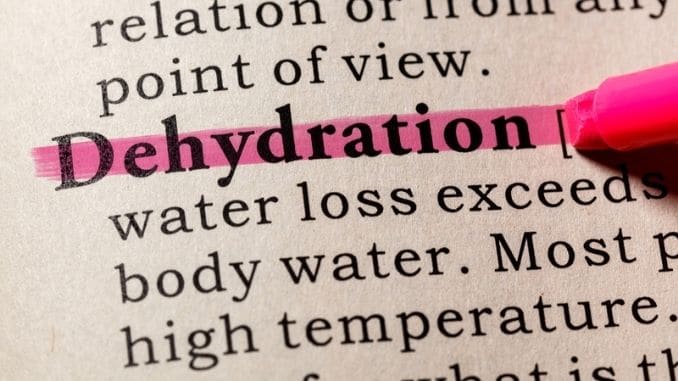
Water is essential for life and is involved in virtually all functions of the human body. A water loss of only 1-2 percent makes you mildly dehydrated and has been found to impair cognitive performance [4], among other things.
How much water you have in your body at any given time depends on the difference between how much you’ve taken in and how much you’ve lost. The process of maintaining a balance between these two is called “hydration.”
Dehydration occurs when you lose more fluid than you take in, and your body is lacking the fluid it needs to operate optimally. Since the body is constantly losing water through breathing, sweating, and urinating, you have to regularly replace it or you can become dehydrated.
What Causes Dehydration?
Dehydration usually happens when you don’t drink enough fluids to replace what you’re losing. But dehydration can also occur for the following reasons:
- You’re sweating more than usual (it’s hot or you’re exercising vigorously)
- You’re out hiking and you don’t have access to enough water
- You simply don’t feel thirsty and haven’t been drinking enough
- You have a fever
- You’re suffering from diarrhea or you’re vomiting (both of which accelerate water loss)
- You’re urinating more than usual (because of an illness or medications)
Who’s Most at Risk for Dehydration?
Though anyone can become dehydrated at any time, some people are more at risk for it.
- Sick infants or children: They can lose more fluids when suffering from a fever, diarrhea, or vomiting.
- Older adults: Seniors struggle to retain water and have a reduced sense of thirst.. Chronic illnesses and medications can make staying hydrated more difficult.
- Chronic illnesses: People of all ages with untreated diabetes or kidney disease can be more at risk for dehydration.
- Outdoor workers: Those who work outside when it’s hot and humid are at a greater risk for dehydration.

What are the Complications of Dehydration?
Dehydration, if not treated right away, can lead to more serious complications like the following:
- Heat-related illness: Muscle cramps, heat exhaustion, and heatstroke can all result from not drinking enough fluids.
- Urinary and kidney problems: Repeated bouts of dehydration can lead to urinary tract infections, kidney stones, and even kidney failure.
- Seizures: If you’re not getting enough electrolytes in your fluids, this could lead to seizures and loss of consciousness.
- Low blood volume shock: This is a rare condition that can result when low blood volume causes a drop in blood pressure. It can be life-threatening.
You Can Be Dehydrated and Not Know It

We have a natural mechanism that helps prevent dehydration: thirst. But thirst doesn’t always work the way it should.
Normally, your body triggers the thirst mechanism in your brain when it needs fluids, compelling you to drink something. However, many things can disrupt this system.
First, if you’re not feeling well, you may not feel like drinking anything even though you need to. That could lead to dehydration during illness.
Second, if you’re over 65, you may not feel thirst as intensely as you used to. As we age, this system starts slowing down, which means you may not feel thirsty even though you need to drink. This is one reason why seniors can be particularly vulnerable to dehydration. It has been reported to occur in 17-28 percent of older adults in the U.S.
Third, it’s possible that you did feel thirsty but you just ignored it. It’s easy to think that you can get a drink of water “in a minute,” but when that minute passes, you forget to do so, and your body stops sending the signal.
Indeed, your body can quickly adapt to what you want it to do, and if that is to go without water, it will do its best to obey. If you constantly ignore your thirst, your body adapts to mild dehydration and tries to function that way over time.
Some studies have indicated that our thirst sensation doesn’t show up until we’re already mildly dehydrated—around 1-2 percent of fluid loss. By then, the effects are already setting in and starting to cause symptoms like those listed below.
So, keep in mind that just because you don’t feel thirsty doesn’t necessarily mean that you don’t need to drink water.
Does any of the following sound familiar – you don’t have any physical signs of illness but you constantly feel tired and “gray” and you have fatigue that doesn’t get better with sleep? Check out this 14-Day Adrenal Health Quick Start Program now!

